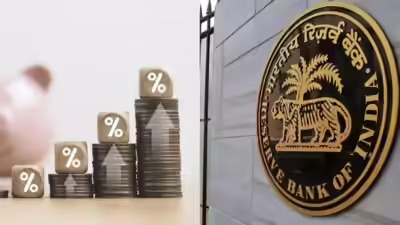
Follow WOWNEWS 24x7 on:
Updated: July 14, 2025 07:44

The Reserve Bank of India's Standard Deposit Facility (SDF) recorded a record average quarter of Rs 2.6 lakh crore for the June 2025 quarter, the highest since it began operations in April 2022. This reflects a banking system that is liquidity-abundant but grappling with weak credit demand and risk-averse lending.
Highlights of the June Quarter
Surplus money was kept by banks with RBI due to weak loan growth, particularly in the unsecured segments
SDF balancing tripled year-over-year, with month-on-month averages rising 113% in April, 186% in May, and 340% in June
The current SDF rate is 5.25%, 25 basis points below the repo rate
Why Banks Are Stashing Funds
Credit expansion slowed to 9.5% in Q1 FY26 from nearly 16% in FY24
RBI's liquidity injections during January-March such as CRR reductions and forex operations generated a surplus
With little room for lending, the banks opted for the SDF route, which does not require collateral versus reverse repo
RBI Response to Excess Liquidity
To prevent overnight rates falling less than the repo rate, RBI conducted Variable Rate Reverse Repo (VRRR) auctions
Rs 3.5 lakh crore was mopped up in July alone by three VRRR tranches
In contrast to fixed-rate instruments, VRRR enables banks to bid for preferred rates, bestowing them with liquidity management flexibility
This liquidity lock-in underscores the RBI's fine balance between credit stimulation and money stability, given that banks look for stronger demand signals before lending more aggressively.
Sources: Economic Times, Bank of Baroda, ANZ Research, RBI Bulletin, Financial Express




